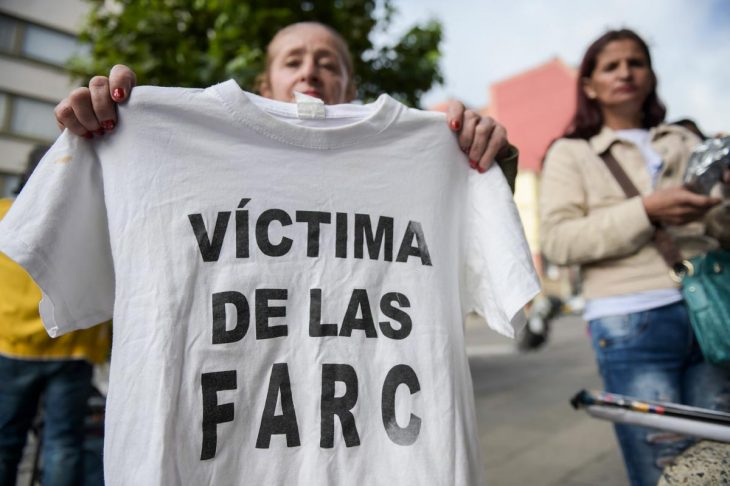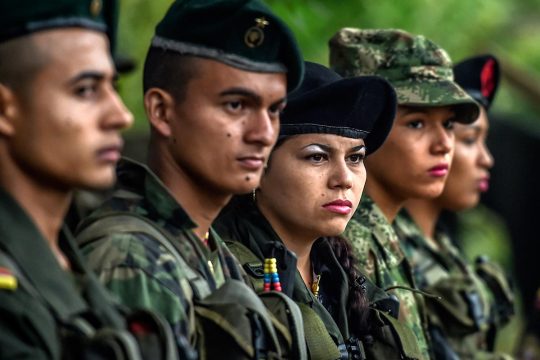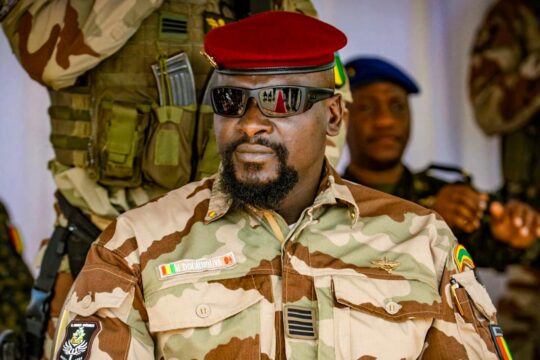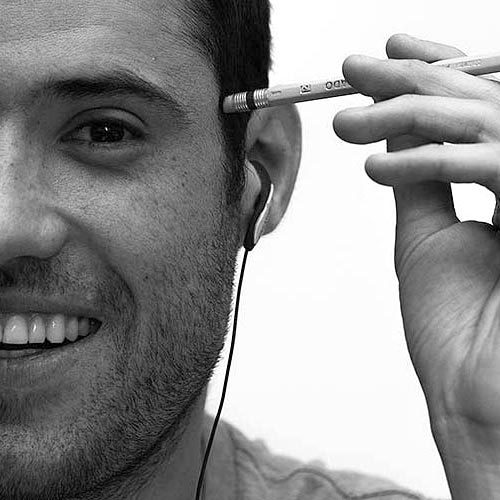As sexual violence has become the new punching bag in the political tussle over the 2016 peace deal, Colombia’s transitional justice has started investigating what role the former Revolutionary Armed Forces of Colombia (FARC) played in using it during the country’s 52-year-long armed conflict. The different expectations of victims and political parties quickly turned it into a litmus test of how much justice, truth and redress transitional justice can bring to survivors in Colombia.
The Special Jurisdiction for Peace – or JEP, as it is locally known, a special tribunal born from the peace agreement – is focusing on understanding what orders within FARC allowed sexual violence to happen and which persons inside the organization were responsible for it. Once they are identified, they must come forward to acknowledge their responsibility, tell the truth, and personally help redress victims. They can only qualify for a more benevolent, non-prison sentence of 5 to 8 years if they fulfil this checklist in full.
For the moment, the JEP is not concentrating on the entire universe of victims of sexual violence. But one of the first macro-cases it opened deals with FARC’s practice of forcibly recruiting child soldiers and includes a secondary – or what is called a transversal – line of inquiry on sexual abuse suffered by them.
Another five of the seven cases opened so far are also shedding new information on sexual violence, according to JEP magistrate Iván González who leads investigations of this crime. They include the dossiers on FARC’s kidnappings and on extrajudicial executions carried out by the military, as well as two regional cases and an ethnic one on the plight of the Awá indigenous people.
Victims demand a major case
This approach has not satisfied many prominent victims of sexual violence, who are advocating for the JEP to open a complete dossier on this crime and overcome what they perceive as second-rate treatment.
“We want a line of research on sexual violence opened in order for other women who suffered it to feel represented and see that things are changing, that we’re not an afterthought,” says María Choles, a 45 year-old woman from the banana-growing region in the Caribbean coast. She was twice a victim of sexual violence: first when FARC members assaulted and forcibly displaced her in 1995, then when paramilitary groups sought her in 2000 after she had returned to her hometown. “We don’t want it camouflaged among other events that took place”, she adds.
The JEP seems open to heeding their advice. “I would personally say that victims’ hopes of seeing a case on sexual violence is a realistic expectation. This doesn’t mean that the cases currently in process should not move forward in their inquiries too. We have to advance in gathering as much information as we can,” says magistrate Iván González. “From the gender-based committee, we’re doing everything we can to support the Judicial Panel for Acknowledgment [in the JEP] so it can consider that option, although the decision of opening a case is up to it,” agrees magistrate Alexandra Sandoval, who has been accompanying victims of sexual violence in the tribunal.
Reaching out to Rosa Blanca women
An equally pressing question is whether the JEP can manage to persuade sexual violence victims of FARC who have been critical of the peace deal to come forward and work with it.
Aware of this gap in trust, magistrate González reached out to the White Rose (Rosa Blanca) women, a group of 50 former female FARC combatants who were sexually abused by their superiors, and met with their lawyer Berta Suárez three times this year. One of the women, Yamiled Noscué, was present in their last meeting in April, where they agreed to advance on drafting a report. They have also spoken with JEP president Patricia Linares, but they feel those meetings were less successful.
Rosa Blanca women in particular want to see FARC commanders respond for sexual violence that happened within the guerrilla’s ranks, including rape, forced abortions and forced sterilizations. “In my case, I seek justice and reparation. I do not have traumas, but I do want them to be punished and to ask for our forgiveness because they left our dignity on the floor. That’s how I understand justice, even though their repentance doesn’t take the damage away,” says Yudy Tovar, a 30-year-old former FARC member who left the guerrilla a decade ago and is denouncing repeated sexual assaults against her.
Most of Rosa Blanca members are former FARC combatants who laid down their weapons in 2017 with the rest of the organization or were carrying out prison sentences. This means they are now on probation and also need the JEP to determine their own legal situation. As in many other circumstances in the Colombian armed conflict, they are both victims and perpetrators, or what legal scholar Iván Orozco – who advised the Government’s negotiation team in the peace talks – has dubbed “dual responsibilities”.
The FARC commanders in denial
Both groups of victims, those supporting the transitional justice and those critical of it, agree on one thing: for the JEP model to work, former FARC commanders and rebels need to step up and publicly admit their role in crimes like sexual violence. Not only because this is a condition for them to receive more lenient sanctions and for the International Criminal Court to conclude that Colombia is fulfilling its duty to prosecute serious crimes, but especially since it’s what victims value most.
For now, former guerrilla leaders seem unrepentant. “They’re trying to stigmatize us. They’re trying to pin the largest possible amount of crimes on the adversary to generate a situation that hinders reconciliation,” Rodrigo Londoño, FARC’s former commander in chief, argued in March. He denied that sexual violence was systematic, contending that they executed offenders.
“FARC are still lagging behind in publicly acknowledging what they did,” says María Choles, who coordinated the regional chapter of one of the reports submitted to the JEP. She still remembers when Iván Márquez, the former lead negotiator of the guerrilla who abandoned the peace deal last year and has just announced that he is taking up arms again, privately rebuked her after she had been one of the 60 victims who shared her expectations on a peace deal with the two negotiation teams in Havana in 2015. According to Choles, Márquez approached her and suggested she should not speak about her personal experience unless she could identify the direct culprits. Shaken, she replied that that was not her duty but the State’s.
“They still do not admit the crime within their ranks. Supposedly no woman was abused, supposedly none was ever forced to abort. They still contend that children joined voluntarily,” says Tovar, who was recruited by FARC in southern Tolima when she was 16 and escaped a year and a half later.
Victims’ scepticism towards the JEP
Almost three years after the peace agreement was signed, victims like Choles and Tovar are determined to mount legal pressure on commanders refusing to own up to FARC’s actions.
Some of these women have already proven their effectiveness in court. Choles and her organization, the Initiative of Women for Peace (IMP), were instrumental in building the case that resulted in the recent conviction of former paramilitary commander Hernán Giraldo for raping at least 37 girls. Another feminist organization, Women’s Link Worldwide, is set to present an exhaustive report on forced sterilizations within FARC soon.
For the time being, Tovar says they expect to present to the JEP a first partial report detailing 100 cases of forced recruitment and sexual violence next month, which she describes as a “counterpoint” and “counterattack” to FARC’s denial. They’re also planning on submitting their report to the International Criminal Court and the Inter-American Court of Human Rights, in the hope of exerting pressure from abroad.
They’re still adamant that they don’t trust the transitional justice system. “I personally feel that the JEP doesn’t believe us, that the truth for them is the one FARC has been telling,” says Tovar, although she portrays meetings with magistrates as constructive and feels there is an open door. “There is a glimmer of hope that magistrate González reads our report and pays attention to it. He said that it is a fundamental legal document,” Tovar reflects. After a few minutes, she nuances: “It’s a faint glimmer though.”
Which justice system can best address sexual violence?
In a scenario in which it doesn’t seem likely that the JEP will present its first indictment against FARC before the end of this year, one question still looms in the air: which is better suited to provide justice to victims of sexual violence, the JEP or the ordinary criminal justice system?
The women of Rosa Blanca and Fevcol, another organization of victims of FARC which has been critical of the peace deal, are currently gathering the 1,8 million signatures needed to call a referendum in which Colombians would be able to vote on whether to revoke the JEP. Arguing that the ordinary criminal justice system is more trustworthy than the transitional justice, they are promoting that the Supreme Court of Justice take over its functions by creating a special chamber. Although this outcome is unlikely, Colombia’s President Duque’s party is actively supporting the idea and also using it as a campaign message.
Evidence however seems to contradict their idea that the ordinary criminal justice system is more effective on cases of sexual violence. Out of 634 cases prioritised by two Constitutional Court edicts, only 14 – or 2,2% – had seen a conviction, concluded a 2016 report by 12 respected legal and women’s rights NGOs. Impunity levels in prioritised sexual assault cases ranges between 92% and 97%, they established.
There is also proof that in the past Colombian armed actors shied away from admitting crimes of sexual violence. In the transitional justice system following the demobilization of extreme right-wing paramilitary groups during Alvaro Uribe’s presidency (2002-2010), rape and other sexual offences were initially considered individual perversions that generated exclusion from special criminal treatment. The result was that, with no incentive to confess, most of them opted to keep quiet and face a more beneficial treatment in the ordinary justice system. “A reduced sentence, even to the point of obviating imprisonment entirely, would allow them to avoid public exposure in the construction of truth process and not require them to ask their victims for forgiveness. The ordinary justice system therefore presents a discrete and undoubtedly rather innocuous way out”, according to the findings of legal researchers Mónica Hurtado and Ángela Iranzo of the University of La Sabana and Sergio Gómez of the General Attorney’s Office.
The JEP’s first decision on sexual violence
Recent steps taken by the JEP seem to show it’s taking sexual violence seriously. One month ago, the court rejected the request filed by former FARC rebel Oscar de Lima Contreras for an amnesty. It did so after finding that he was being investigated in the ordinary justice system for the sexual abuse of a 17-year-old girl from the Wayúu indigenous group.
The JEP’s reasoning in this case gives insight into the way it’s approaching sexual violence in the armed conflict. According to the decision, there are three different hypotheses of how sexual violence may fall under the jurisdiction of the JEP: that it was a policy ordered by the organization or any of its commanders, that it was a common or tolerated practice even though there might not be a specific order, or that it was an act of opportunism made easier by the person’s belonging to an armed group. In all three situations, however, sexual violence cannot be amnestied.
In De Lima’s case, the JEP decided that it falls under its jurisdiction because even if there was no evidence of an order, he presumably took advantage of circumstances like his weapon and the guerrilla’s territorial control to forcibly recruit and sexually abuse the girl. As a result, it denied the amnesty and ordered its investigation and prosecution by one of the JEP’s judicial panels.
“In addition to trampling on us, they’ve pinned the blame on us”
The women of Rosa Blanca say they will help the transitional justice build a case against FARC commanders while continuing to pursue its abolition. “We cannot double down on this side. Regardless of what happens with the referendum, we will honour our duty of presenting a report to the JEP. We know that if we don’t comply with this, we cannot demand,” says Tovar, adding that they are ready to be called as witnesses. In the end, all of them insist that the JEP will achieve its goals if it manages to pressure FARC leaders into admitting their responsibility in sexual violence.
“I don’t need FARC to find the specific perpetrator, but for them as an organization to acknowledge my rape,” says Yolanda Perea. “I need to hear them say ‘We raped her, we beat her when she was pregnant until she lost her baby and on top of that, we murdered her mother. None of this happened because she wanted or sought it’. Because in addition to trampling on us, they’ve pinned the blame on us.”








